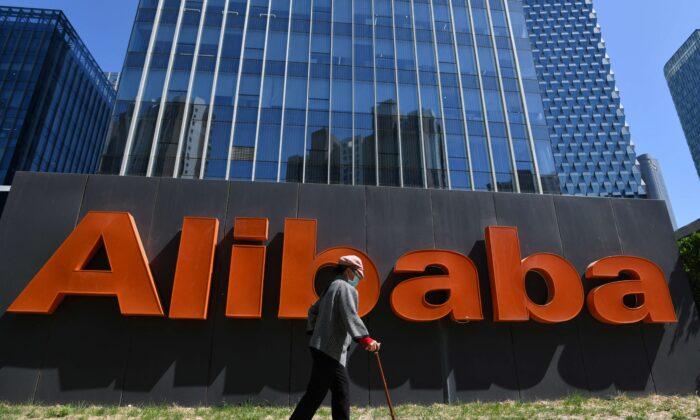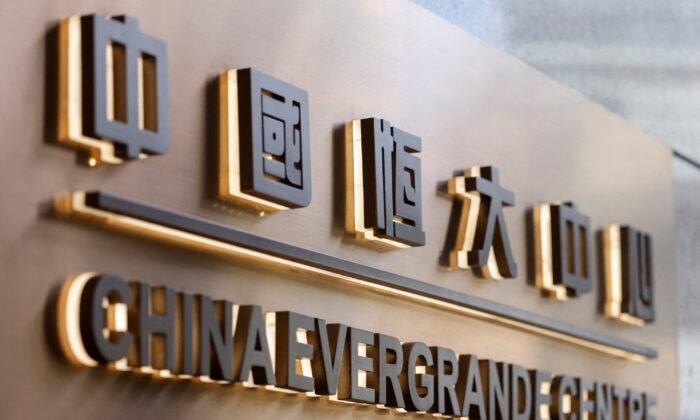The American dream of Chinese business owners was shattered when more than 200 China Concepts Stock left the United States, the world’s largest capital market, due to China’s rejection of U.S. regulatory requirements as well as the U.S.-China geopolitical tensions.
June 10 was the last day Didi Global (DIDI) was listed on the New York Stock Exchange (NYSE), only 11 months after its IPO. Didi’s share price fell to $2.29, 84 percent lower than its IPO share price of $14.
An app-based ride-hailing service Didi made its public debut on the NYSE on June 30 last year. It successfully raised $4.4 billion at a share price of $14. However, it was subjected to a cybersecurity probe by the Cyberspace Administration of China and had its app taken down. New users were banned from registering, citing “serious” violations of laws and regulations regarding the collection and use of personal information. Didi’s share price has since plummeted. In December last year, Didi announced that it planned to delist from the NYSE.
The Chinese Communist Party (CCP) targeted Didi because the Chinese cyber-watchdog wanted Didi to postpone its IPO, but the company went ahead as planned.
Contrary to Didi, another similar internet giant that obeyed Beijing and abandoned its IPO plan in the United States was ByteDance, TikTok’s parent company.
ByteDance was valued at $180 billion in a fund-raising round in December 2020. The company was considering an IPO in the United States or Hong Kong, but in late March 2021, founder Zhang Yiming was asked to “have a chat” with the CCP’s cybersecurity regulators and securities regulators. Afterwards, the company put its plans for a listing abroad on hold indefinitely.
Conflict Between Chinese and US Laws
The China Concepts Stocks listed in the United States also face the potential danger of being delisted. On the surface, the reason seems to be the Holding Foreign Companies Accountable Act (HFCAA) passed by the U.S. Congress in December 2020. But the root cause is the CCP’s refusal to comply with U.S. regulatory requirements.The HFCAA has two key elements. First, foreign companies listed in the United States will be reviewed or investigated by the Public Company Accounting Oversight Board (PCAOB). If they fail to meet this requirement within three years after 2021, they will be delisted. Second, foreign companies listed in the United States will be required to disclose their relationship with foreign governments to demonstrate that they are not owned or controlled by foreign governments.
Notably, the Act directly named the CCP, requiring the disclosure of the names of the CCP officials on the board, as well as “whether the articles of incorporation of the issuer (or equivalent organizing document) contain any charter of the Chinese Communist Party.”
Beijing’s law directly conflicts with those of the Holding Foreign Companies Accountable Act.
The Securities Law of the People’s Republic of China, passed in 2019, stipulates that foreign securities supervisory and regulatory authorities are not allowed to conduct direct investigation and evidence collection activities in China. Without the consent of the China Securities Regulatory Commission and relevant departments, no unit or individual may provide documents and information relating to securities business activities abroad.
On December 24, 2021, the China Securities Regulatory Commission (CSRC) released “Provisions of the State Council on the Administration of Overseas Securities Offering and Listing by Domestic Companies (Draft for Comments)” and “Administrative Measures for the Filing of Overseas Securities Offering and Listing by Domestic Companies (Draft for Comments).” These again required domestic entities and individuals to provide relevant documents and information, in accordance with the requirements of the overseas securities regulatory authorities, for investigation and collection of evidence, to report to the CSRC and provide them only after consent of the CSRC and the relevant departments.
The CCP’s laws explicitly declare its power over state-owned enterprises (SOEs). The “Guiding Opinion on Deepening Reform of the State-Owned Enterprises” issued in 2015 claimed that the CCP’s leadership of SOEs should be strengthened and improved, such that the CCP’s role should be written into the SOE’s corporate charter and the Chairman of the Board should generally be the party secretary.
Chinese companies listed in the United States include the following eight CCP SOEs: China Life Insurance Company (LFC), PetroChina (PTR), Sinopec (SNP), Aluminum Corporation of China Ltd (ACH), China Eastern Airlines (CEA), Huaneng Power International (HNP), Sinopec Shanghai Petrochemical Company Ltd (SHI), and China Southern Airlines (ZNH).
Even for private enterprises, the CCP laws require the establishment of its Party organization in the company. Article 19 of the Company Law states that “In companies, Communist Party organizations shall, in accordance with the provisions of the Constitution of the Communist Party of China, be set up to carry out activities of the Party.”
SEC Chairman Gary Gensler is pessimistic about Chinese stocks staying in the United States because of the conflicts between China and the United States. He said that it might be difficult for the CCP to comply with the Foreign Company Accountability Act, especially since it hasn’t allowed this to happen for years.
It will be especially difficult for those companies deemed “sensitive” by the CCP to remain in the United States.
China Concepts Stock Enterprises Don’t Want To Leave the US
But most China Concepts Stock Enterprises don’t want to be delisted from the United States. In fact, being listed on U.S. stock exchanges has long been a dream of many Chinese entrepreneurs and businessmen.In 2014, Jack Ma led a group of eight Alibaba customers and employees to ring the opening bell at the New York Stock Exchange to celebrate the launch of the company in the United States. The bell ringers wore T-shirts sporting a quote from Jack Ma: “You have to dream, what if it comes true!”
Jack Ma’s “America dream” has been widely recognized by Chinese entrepreneurs for decades. To date, there are 261 Chinese companies listed on the New York Stock Exchange with a total capitalization of approximately $1.32 trillion.
After Alibaba, 48 Chinese companies, including Pinduoduo, Qutoutiao, Farmmi, Bilibili, IQIYI, and NIO, debuted on the U.S. stock market at the end of 2018, raising a total of nearly $9.86 billion.
After the Holding Foreign Companies Accountable Act came into force in 2021, the pace of Chinese companies going public in the United States did not slow down.
As of December 31, there were 41 Chinese companies going public in the United States in 2021, raising a total of approximately $14.27 million.
Why are Chinese companies rushing to list in the United States? It has to do with firms’ demands for financing and the CCP’s policy of restricting foreign investment.
According to Davy Jun Huang, an economist living in the United States, private enterprises in China, especially internet enterprises, are severely short of capital in the early stages and bank loans are difficult to get, hence they usually rely on angel investing, venture capital, and private equity. But in the early years, these investment institutions were mainly outside China. For example, Alibaba’s investor was Japan’s Softbank.
However, the CCP’s law imposes restrictions on foreign investment in Chinese enterprises, particularly in the telecommunications and internet sectors, making it virtually impossible for joint ventures to be approved. To overcome this problem, Chinese issuers adopted a variable interest entity (VIE) structure to circumvent this layer of regulation and raise capital abroad.
The VIE structure refers to a business entity outside China that controls a domestic business entity by way of an agreement. If these companies want to list in China, the China Securities Regulatory Commission will consider the VIE structure to be a circumvention of legal policies and of questionable legality, and will not approve it. Therefore, enterprises, such as Alibaba and Jingdong, have little chance of listing in mainland China and can only go to Hong Kong or the United States.
In addition, listing in China requires three consecutive years of profitability and an accumulated profit of more than RMB 30 million (about $4.47 million), whereas in the United States there is no such requirement. This is enough to push more than 90 percent of internet companies to the United States.
Examples include IQIYI, with a three-year loss of nearly RMB 10 billion (about $1.49 billion), raised $2.1 billion on the day of its U.S. IPO; Pinduoduo, with a three-year loss of RMB 1.3 billion (about $190 million), raised $1.64 billion on the day of its U.S. IPO; and NIO, with a three-year loss of RMB 10 billion (about $1.49 billion), raised $1.01 billion on the day of its U.S. IPO.
The U.S. capital market has capital from all over the world, so the opportunities and scope for financing are huge. As of July 2021, the United States accounts for more than half of the global equity market, at around 55.9 percent, followed by Japan at 7.4 percent, China at 5.4 percent, and the UK at 4.1 percent. The U.S. equity market is 10 times larger than China’s.
Davy Jun Huang said that from the perspective of the companies themselves, especially from the corporate managers and investors’ view, they would prefer to stay in the United States. “The capital capacity, the maturity of the market, the degree of regulation, and the management incentive bonus are unmatched by China.”
But in the case of Didi, which was forced to return to China, “Beijing’s attitude is decisive in determining whether Chinese companies stay or go. In addition, the situation between the United States and China is a decisive factor.”





Friends Read Free